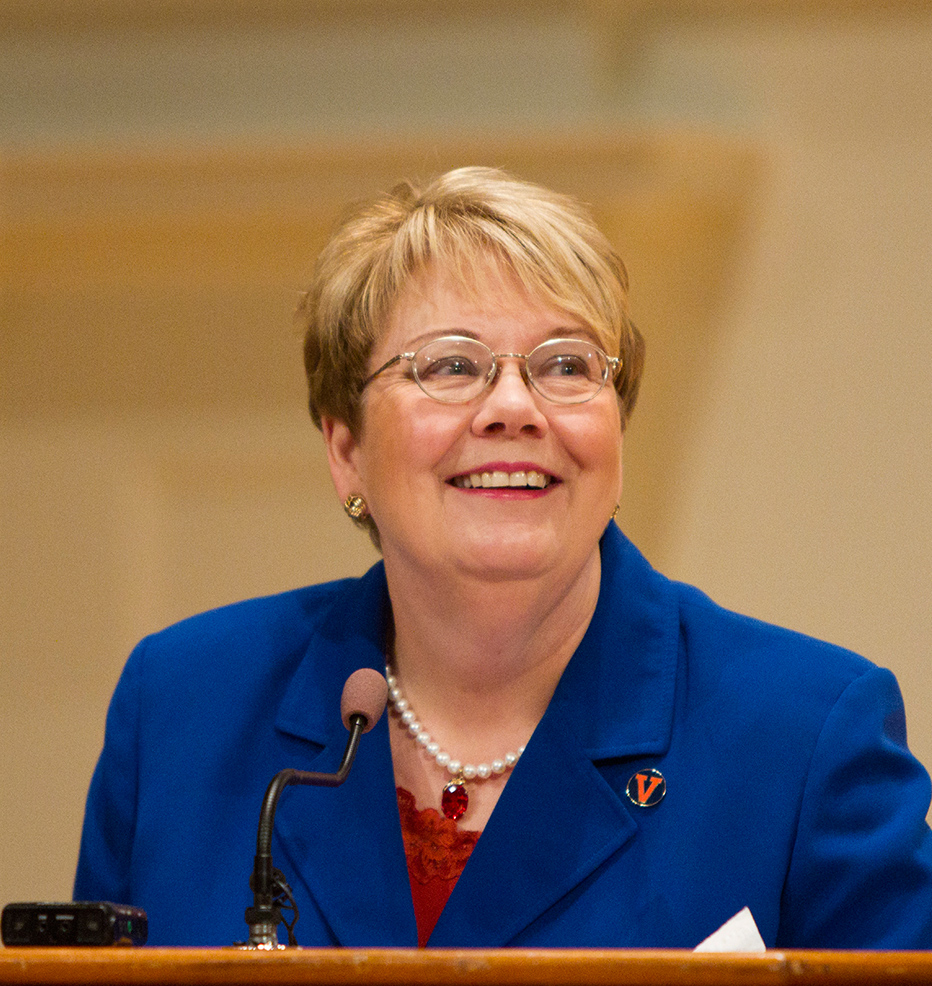University of Virginia President Teresa A. Sullivan attended an invitation-only event at the White House on Thursday to meet with President Obama, First Lady Michelle Obama, U.S. Education Secretary Arne Duncan and senior administration officials to discuss efforts aimed at increasing college opportunities. Also in attendance were leaders from other colleges and universities, nonprofit organizations, foundations, state governments and private-sector organizations.
The one-day summit was in response to a call for action from the Obama administration asking colleges and universities – and others – to make new commitments to increase college opportunity. Summit participants were asked to describe the commitments their respective organizations would make.
The University’s contribution to the meeting was based on research conducted by Sarah Turner, who chairs U.Va.’s Department of Economics, and by Ben Castleman of the Curry School of Education, who accompanied Sullivan to the summit. Turner’s research looks at the reasons high-achieving, low-income teens choose not to enroll in the nation’s top colleges, and Castleman’s research focuses on supporting prospective first-generation college students through the application process.
In response to this research, the University is reconfiguring its outreach efforts to potential Virginia applicants from lower economic backgrounds, Sullivan said.
“This is a vitally important conversation, both at U.Va. and at the national level,” she said. “We were glad to be able to participate at the president’s invitation, to hear from our peers and friends and to share the University’s own initiatives.”
U.Va. will identify high-achieving, low-income students who are qualified for admission to the University and send them personalized messages to increase their understanding of college costs, need-based financial aid and net price. U.Va. will continue to provide practical information and individualized guidance throughout the admission and financial aid application processes.
U.Va. also will strengthen partnerships with high schools in low-income areas of the state, provide opportunities for low-income students to visit the University without cost and provide students with peer and faculty mentors.
The University already has begun to implement several elements of the plan. High schools, college-access programs and students have received expense vouchers to visit the University in the fall, and the University established a communication plan targeting applicants who expressed interest in financial aid, reminding these students of deadlines and offering application support.
Since enhancing the University’s financial aid program in 2004-05 to meet 100 percent of students’ demonstrated financial need, the University has increased its financial commitment to students from $11 million to more than $40 million, an increase of 264 percent.
U.Va. launched the Virginia College Advising Corps (originally called the College Guide Program) in 2005 to improve college access for low-income, first-generation and under-represented students.
These and other efforts have resulted in graduation rates that are among the best in the nation, with a six-year graduation rate for all students of 93 percent, including 88 percent for students with need, 84 percent for African-American students and 83 percent for low-income students.
The White House report, “Increasing College Opportunity for Low-Income Students,” and a comprehensive list of the summit participants’ commitments is available on the White House website.
Media Contact
Article Information
January 16, 2014
/content/president-sullivan-participates-white-house-summit-expanding-college-opportunities

